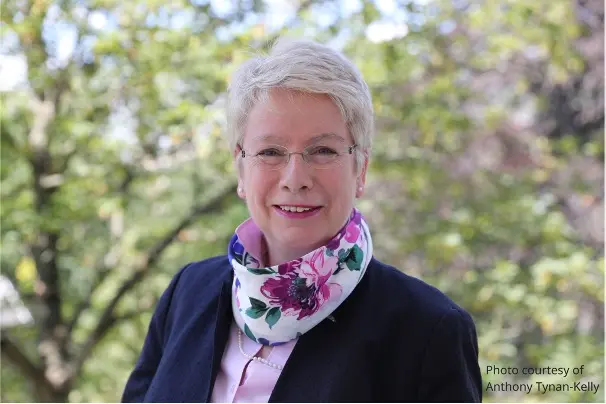Myriam Wijlens was first appointed as a delegate to the Faith and Order Commission by the Vatican Dicastery for the Promotion of Christian Unity back in 2008, also at that time as the first woman. During her second mandate from 2014 to 2023, she was a co-convenor - again for the first time for the Catholic Church - for the working group "Moral Discernment in the Churches" and did so together with a colleague from the Orthodox Church. Under their leadership, two studies and a final document were published. The first study contains self-descriptions: Churches describe how they come to a judgment on moral issues, which factors play a role and who makes binding decisions. The second study analyzes ethical issues that have changed over the course of history: what triggered a rethinking, what factors played an important role in the process that brought about a change or modified a conclusion and how was it possible to maintain unity despite change? The processes were analyzed using examples from the various churches from history in order to gain insights for issues that the churches face today. Topics included, for example, burial after suicide, Orthodox, Calvinist and Catholic considerations on dealing with usury, from the ban on women speaking in church to the development of women's choirs in the fourth century in the Syrian Orthodox Church, religious freedom in the Catholic Church, interfaith marriages in a Muslim context among the Methodists in Malaysia, etc.
Based on these insights, the Commission issued the study document "Churches and Moral Discernment: Facilitating Dialogue to Build Koinonia" in 2021. The document offers the churches an instrument that allows them to better understand the processes and the tensions that often accompany decisions around ethical questions both within and between the churches. The hope is that with the help of this tool division can be prevented and dialogue towards unity can be promoted. Prof. Wijlens reports that these three publications are attracting a great deal of attention, as almost all churches are facing immense challenges around ethical issues. She herself gives lectures on this subject all over the world, for example in April 2024 at Seton Hall University near New York.
Prof. Wijlens reports that the new Faith and Order Commission, which recently began its work in Indonesia, will continue to focus on the problems of ethical issues and will concentrate on anthropology, among other things. Another study group, which she is temporarily co- convening, will focus on how to understand visible unity? What contribution can an ecclesiology that thinks from baptism make and what does it mean that members of churches worldwide live in different contexts? A third group will deal with questions of mission and witness. What does it mean to be church in and for the world? Topics such as decolonization and contextualization will be important aspects. Prof. Wijlens will continue to work in the study group preparing the 1700-year commemoration of the Council of Nicaea (325) in addition to her work as vice-moderator of the commission. The highlight of the celebrations will certainly be the world conference in Wadi El Natrun in Egypt in the fall of 2025.

